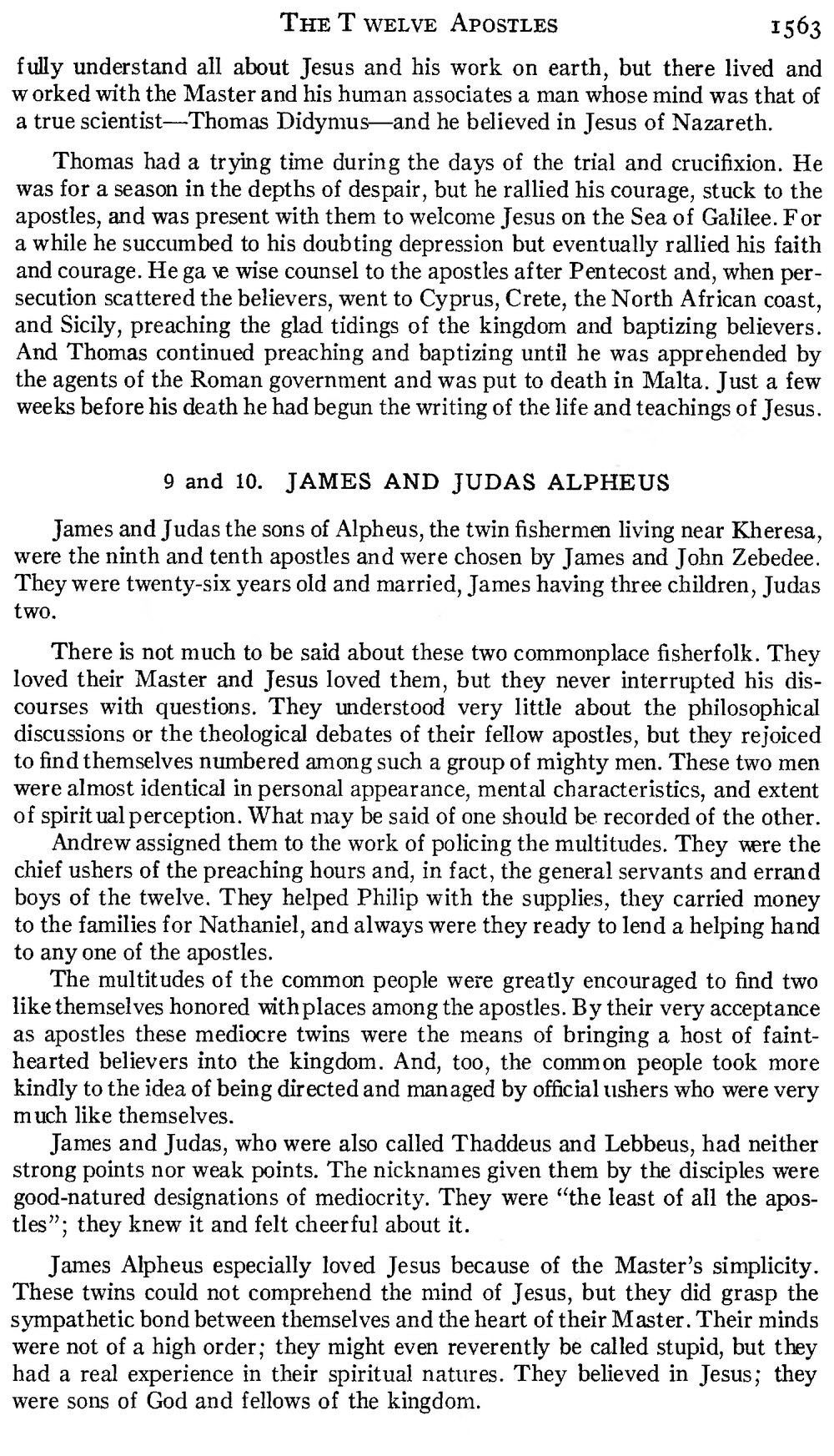fully understand all about Jesus and his work on earth, but there lived and worked with the Master and his human associates a man whose mind was that of a true scientist—Thomas Didymus—and he believed in Jesus of Nazareth.
Thomas had a trying time during the days of the trial and crucifixion. He was for a season in the depths of despair, but he rallied his courage, stuck to the apostles, and was present with them to welcome Jesus on the Sea of Galilee. For a while he succumbed to his doubting depression but eventually rallied his faith and courage. He gave wise counsel to the apostles after Pentecost and, when persecution scattered the believers, went to Cyprus, Crete, the North African coast, and Sicily, preaching the glad tidings of the kingdom and baptizing believers. And Thomas continued preaching and baptizing until he was apprehended by the agents of the Roman government and was put to death in Malta. Just a few weeks before his death he had begun the writing of the life and teachings of Jesus.
James and Judas the sons of Alpheus, the twin fishermen living near Kheresa, were the ninth and tenth apostles and were chosen by James and John Zebedee. They were twenty-six years old and married, James having three children, Judas two.
There is not much to be said about these two commonplace fisherfolk. They loved their Master and Jesus loved them, but they never interrupted his discourses with questions. They understood very little about the philosophical discussions or the theological debates of their fellow apostles, but they rejoiced to find themselves numbered among such a group of mighty men. These two men were almost identical in personal appearance, mental characteristics, and extent of spiritual perception. What may be said of one should be recorded of the other.
Andrew assigned them to the work of policing the multitudes. They were the chief ushers of the preaching hours and, in fact, the general servants and errand boys of the twelve. They helped Philip with the supplies, they carried money to the families for Nathaniel, and always were they ready to lend a helping hand to any one of the apostles.
The multitudes of the common people were greatly encouraged to find two like themselves honored with places among the apostles. By their very acceptance as apostles these mediocre twins were the means of bringing a host of fainthearted believers into the kingdom. And, too, the common people took more kindly to the idea of being directed and managed by official ushers who were very much like themselves.
James and Judas, who were also called Thaddeus and Lebbeus, had neither strong points nor weak points. The nicknames given them by the disciples were good-natured designations of mediocrity. They were "the least of all the apostles"; they knew it and felt cheerful about it.
James Alpheus especially loved Jesus because of the Master's simplicity. These twins could not comprehend the mind of Jesus, but they did grasp the sympathetic bond between themselves and the heart of their Master. Their minds were not of a high order; they might even reverently be called stupid, but they had a real experience in their spiritual natures. They believed in Jesus; they were sons of God and fellows of the kingdom.
